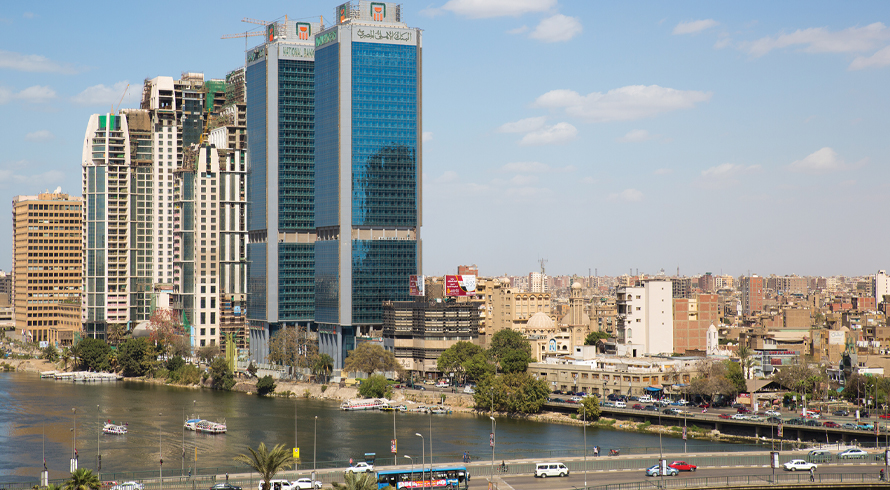Level 1 isn’t going to save the tourism and hospitality industry, business rescue is
At a glance
- The South African tourism industry has suffered significant losses in revenue and jobs due to the COVID-19 pandemic and lockdowns.
- Business rescue proceedings, provided for in the Companies Act, can offer necessary relief and help tourism companies survive the pandemic.
- Business rescue provides benefits such as a moratorium on legal proceedings, protection of assets, renegotiation of employment contracts, and suspension / cancellation of contractual obligations. It also helps maintain the reputation of companies in the industry and protects directors from personal liability for trading recklessly.
However, ensuring that this industry survives beyond the COVID-19 pandemic is crucial for South Africa’s economic and social wellbeing; as employees will be able to keep their jobs in the long-term, and travelers will finally be able to book those trips they have been eyeing out for months now. For many companies within the industry, the time for considering the restructuring of its debts or rescue mechanisms has already come (if not passed).
Although Government has admirably launched initiatives such as the Tourism Equity Fund (TEF) to assist with boosting the industry, tourism and hospitality companies must recognise that these initiatives are in themselves insufficient to successfully save their businesses. Business rescue proceedings, being the legal mechanism found in Chapter 6 of the Companies Act 71 of 2008 (Act), may potentially provide the adequate necessary relief which could allow companies in the industry to survive the COVID-19 pandemic and capitalise on the post-pandemic opportunities which lie ahead.
The benefits and relief provided by business rescue
Due to the uncertainty within the tourism and hospitality industry caused by our fluctuating levels of lockdown, many companies are hopelessly still holding onto the possibility that business will improve without them having to consider intervening measures such as business rescue. But the numbers speak for themselves. Even if we were to proceed on the perhaps misguided assumption that we will remain in level 1 lockdown until the end of the national state of disaster, the losses that have already been incurred by companies in the industry cannot be remedied in the absence of immediate proactive intervention.
Undoubtedly, many of these companies are already facing claims for outstanding rent, salaries and / or mortgage repayments. If left unchecked, these claims could culminate in legal proceedings being instituted against the companies for the payment of these amounts. The walls are starting to close in on these companies, and business rescue is arguably the key for them to temporarily escape and get some breathing space to allow the business to return to a state of solvency.
The legal consequences of being placed in business rescue, and which provide this breathing space, can be summarised as follows:
- No legal proceedings, including enforcement action, can be instituted, or continued against the company, or in relation to any property belonging to the company or in its lawful possession. This is made possible by way of the imposition of a moratorium as provided for in terms of section 133 of the Act, allowing the business the freedom to restructure and rehabilitate without fear or hinderance of creditors or stakeholders instituting legal proceedings against it.
- No one will be able to exercise any right in connection to property in the lawful possession of the company, irrespective of whether the company is the owner of the property, unless the business rescue practitioner has given their written consent. This is in accordance with section 134 of the Act. Accordingly, the company will be able to keep assets which it requires to continue business.
- The company’s employees will continue to be employed on the same terms and conditions, unless: (i) changes occur in the ordinary course of attrition; or, (ii) the employees and the company agreeing different terms. This provision gives companies, acting through their business rescue practitioner, the scope to cut their employee overheads by renegotiating their employment contracts.
- The business rescue practitioner is empowered to either suspend or, on application to a court, cancel any contractual obligations which would otherwise become due by the company during the course of the business rescue proceedings in terms of section 136(2) of the Act.
The TEF
Whilst funding from Governmental initiative such as the TEF can assist in starting to recoup the losses sustained by companies in the industry, it must be remembered that their prescribed qualifying criteria is aimed at a very niche sector of the market. The turnaround time for obtaining this funding will likely also be quite long due to the complexity of the application process.
Accordingly, the funding will only be available at a much later stage, if at all for those not meeting the requirements. Whilst companies are encouraged to pursue applications for this sort of funding, they should not wait around to find out whether their application has been successful, and to be paid, before they take additional steps towards saving themselves. They should instead view these initiatives such as being supplementary (and not the sole) measures to assist with saving their businesses.
Business rescue in the tourism and hospitality industry: reputation is everything
The reputation of a company providing tourism and hospitality services is of paramount importance to its continued survival and success. Although there has historically been a perception that being placed into business rescue creates reputational harm for a business, companies must understand that in the current circumstances business rescue actually provides a means of maintaining its reputation. In light of the continued restrictions on the operations of businesses in tourism and hospitality industry, their customers are more readily understanding of the need for them to be placed under business rescue in order to survive these challenging and uncertain times.
Additionally, companies providing tourism and hospitality services are also in possession of deposits paid by customers in anticipation of their future travels or events. Should these companies go into liquidation, then these deposits will fall into the insolvent estate to be distributed amongst all their creditors (including their employees, further service providers etc.). Should they opt to pay these deposits back to their customers and then go into liquidation, they run the risk of the company’s liquidators claiming these deposits back from the customers on the basis that the payments were made at a time that the company knew it was in a financially distressed position and had the effect of preferring one class of the company’s creditors (being its customers) over and to the detriment of its others. If either of these scenarios were to occur as a result of allowing the company to descend into liquidation, not only would this have major reputational risks, but further, the directors of these companies could face liability not only in their capacity as directors in terms of section 77 of the Act, but also in their personal capacity in accordance with section 22 of the Act.
By contrast, business rescue provides a way for these directors to avoid the above damning scenarios and an opportunity to act in the best interests of the company and avoid the company trading in reckless circumstances, as the election of business rescue gives the company breathing space to rearrange its affairs. By failing to promptly pursue this opportunity, not only do the directors jeopardize the continued existence of their companies but they also jeopardize their reputation as vendors in the tourism and hospitality industry.
Personal liability of directors trading recklessly
Other than the practical benefits of saving one’s company and maintaining your business reputation, directors should also bear in mind that they run the risk of being held personally liable.
Should directors fail to place a company into business rescue and continue to trade in circumstances where they know the company is in financial distress, then they could later be found to have traded recklessly. If this is the case, they may be held personally liable for the losses sustained during the period in which they opted to continue trading instead of placing the company into business rescue.
Conclusion
There are accordingly very real reputational and legal risks posed to directors who decide to continue operating on the false hope that business will improve, as opposed to taking timeous intervention by placing the company into business rescue. There are similarly very real benefits to the business rescue process which can help these companies survive.
Directors of companies in the tourism and hospitality industry should therefore avoid idly holding onto hopes of an uptick in business, and are encouraged to seek immediate legal advice in order to determine whether business rescue is the appropriate legal mechanism for helping save their business and avoiding the aforementioned risks.
The information and material published on this website is provided for general purposes only and does not constitute legal advice. We make every effort to ensure that the content is updated regularly and to offer the most current and accurate information. Please consult one of our lawyers on any specific legal problem or matter. We accept no responsibility for any loss or damage, whether direct or consequential, which may arise from reliance on the information contained in these pages. Please refer to our full terms and conditions. Copyright © 2026 Cliffe Dekker Hofmeyr. All rights reserved. For permission to reproduce an article or publication, please contact us cliffedekkerhofmeyr@cdhlegal.com.
Subscribe
We support our clients’ strategic and operational needs by offering innovative, integrated and high quality thought leadership. To stay up to date on the latest legal developments that may potentially impact your business, subscribe to our alerts, seminar and webinar invitations.
Subscribe




